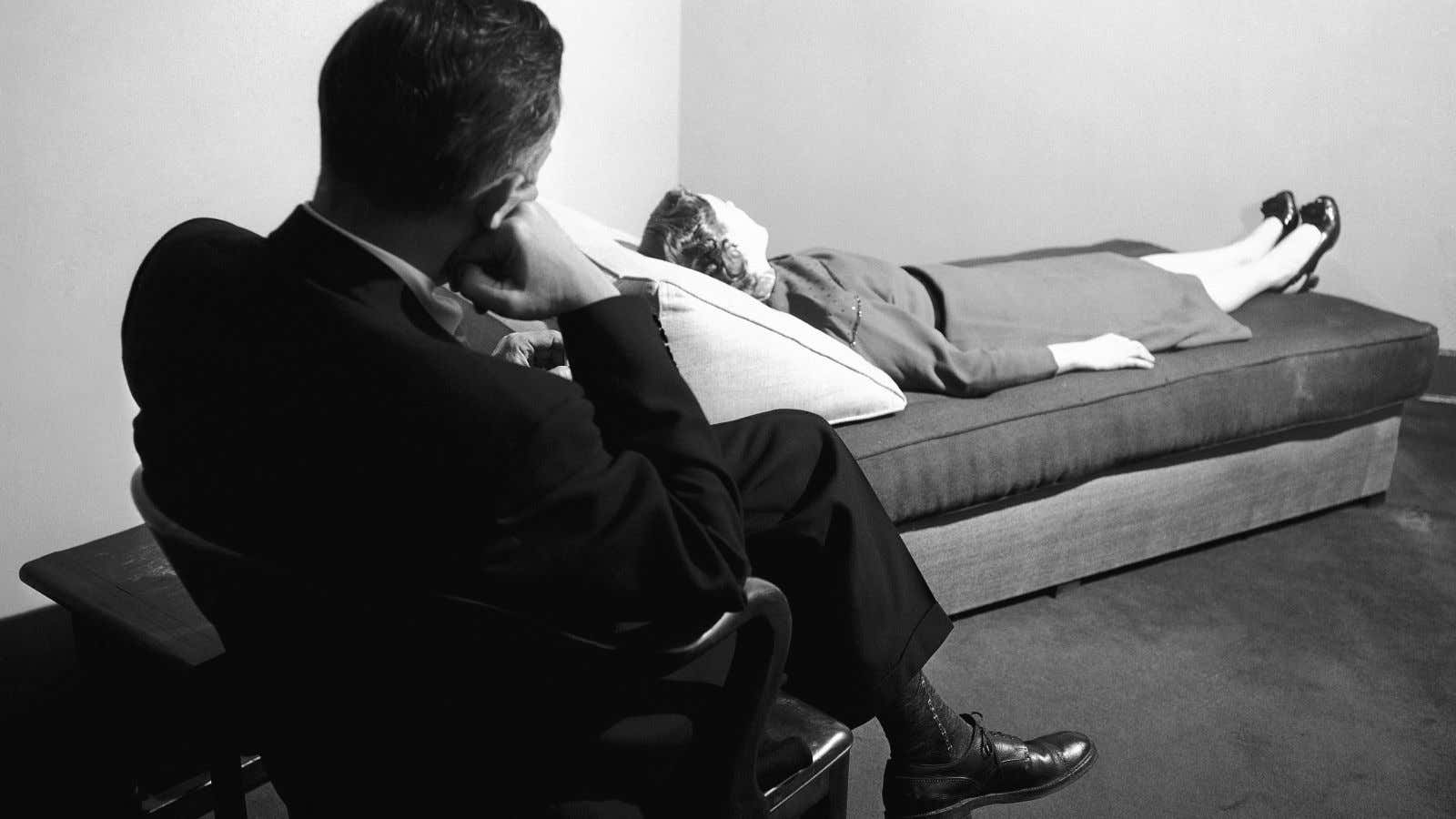Seeking out the perfect therapist can feel as significant and difficult as finding a romantic partner. A study on the effectiveness of trained therapists versus self-help treatment, though, suggests that therapists are not as important as they seem.
A meta-analyses of 15 studies, published in this month’s volume of Administration and Policy in Mental Health and Mental Health Services Research, found no significant difference in the treatment outcomes for patients who saw a therapist and those who followed a self-help book or online program.
The researchers, led by Robert King, psychology professor at Queensland University of Technology in Australia, evaluated the outcomes of 723 patients who were treated for a variety of mental health conditions, including anxiety, PTSD, OCD, and depression.
All 15 studies involved a form of Cognitive Behavioral Therapy (CBT) treatment, and patient outcomes were evaluated by various mental health diagnostic scales, rather than self-assessment.
Contrary to the researchers’ hypothesis that therapists would provide stronger results (though with greater variability), the results showed that therapists were neither more effective nor more variable than self-help options.
They write:
“We found no difference in treatment completion rate and broad equivalence of treatment outcomes for participants treated through self-help and participants treated through a therapist. Also, contrary to our expectations, we found that the variability of outcomes was broadly equivalent, suggesting that differences in efficacy of individual therapists were not sufficient to make therapy outcomes more variable when a therapist was involved.”
The results suggest that therapists don’t play such a significant role in improving the treatment of therapy. “An effect size of the magnitude found here means that the best estimate of the effect of the presence or absence of a therapist suggests that this variable accounts for <1% of outcome variance,” the researchers write.
There are a few caveats. Most of the self-help studies did involve some contact with a professional, such as administrative contact or a training session with a therapist to make sure the self-help was done properly. It could be that even this brief interaction makes a huge different to the outcome of therapy.
Also, the studies were focused on one specific form of treatment, cognitive behavioral therapy techniques, and were conducted for limited periods of time. Therapists can be hugely useful for exploring a broader range of treatment options, and for being a source of counsel over long periods, where patients may not have the motivation to give themselves ongoing self-help therapy.
So, the findings don’t mean we can all do away with therapists and buy a (much cheaper) CBT self-help book instead. But it does suggest, as the researchers write, that self-help “has considerable potential as a first-line intervention.” For those who can’t get a therapy appointment right away, self-help CBT exercises can still have a powerful effect.
